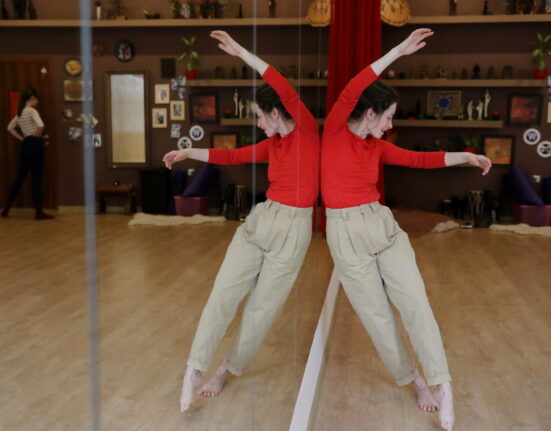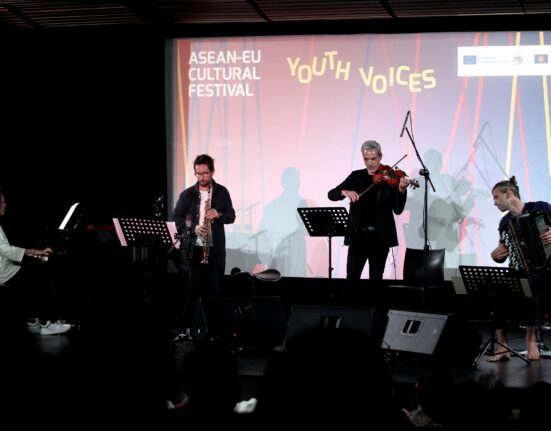A Spanish decree to provide more security for artists and other cultural workers should accelerate EU-level action.


Last month, after months of discussion and political negotiations, the Spanish government launched a benefit for unemployed artists and those who work in the cultural sector, whose livelihoods have suffered so much during the pandemic. The decree will also allow artists and others working in the sector to receive a pension—previously only possible if they undertook activities that generated intellectual property rights.
Promoted jointly by the Ministries of Labour, Culture and Inclusion and Social Security, this is the first time Spain has taken such firm steps to address the specificity of the labour market in the world of culture. It is clearly a huge relief for many thousands working in the sector.
The vice-president and minister of labour, Yolanda Diaz, pointed out that there were ‘very few countries which have this protection’. Indeed many artists, performers and cultural professionals working in the European Union and beyond lack access to social security, stable career development and sustainable working conditions. In addition, redistribution mechanisms for artists and cultural professionals focus on prices being attached to a final product or performance for their remuneration.
Consistent precarity
In a recent survey by the International Network for Contemporary Performing Arts (IETM) of its members, asked what they would like to change about their working conditions, most expressed the wish to move away from ‘project generated funding’ towards long-term financial stability. Some also urged access to social security for freelance artists and creative professionals, and suggested a basic income for artists in Europe.
In recent years, fairness and working conditions in the performing arts have been at the top of IETM’s agenda. In Which Side Are You On?: Ideas for Reaching Fair Working Conditions in the Arts, published by IETM in December, Katja Praznik, Bojana Kunst and Hans Abbing analyse the roots of the consistent precarity in the arts and suggest concrete ideas towards a more sustainable future for artists.
In April last year, IETM members and guests gathered in Brussels to discuss fairness and working conditions, case studies and more sustainable, equitable and inclusive models for the future. The IETM plenary in Belgrade in September, which brought together more than 400 participants, highlighted the inadequate remuneration of artistic work and the consequences of the ‘project-based’ cultural economy and its negative impacts on artistic production. Participants also pointed out how creative work was appreciated differently from country to country, with discrepancies too in budgets supporting cultural activities and policies related to the sector.
Become a Social Europe Member
Support independent publishing and progressive ideas by becoming a Social Europe member for less than 5 Euro per month. Your support makes all the difference!
While working conditions in the sector are of great concern, so is this variation in public support and rules and regulations among EU member states. A more harmonised system would not only be fairer but would also encourage certain countries to develop a system of protection for their cultural sector.
Covid-19 catalyst
Back in 2006, the European Parliament produced a study on the status of artists in Europe, presenting innovative national measures and models aimed at improving the socio-economic status of authors and performing artists. Despite the efforts of representatives of the sector, however, little progress has been made. One of the main rationales one hears in Brussels is is that most aspects of the working conditions of artists fall within member states’ competences.
Covid-19 seems though to have been a catalyst for the EU institutions finally to take action and address the situation of artists and the creative sector in a more co-ordinated manner. In November 2020, the commission, with input from organisations representing the sector, published a study looking at the characteristics of the employment of artists and cultural and creative professionals in the member states.
Since September 2021, moreover, the commission has been co-ordinating an expert group composed of representatives of the member states and their ministries of culture and employment. The experts, who meet every three months under the ‘open method of co-ordination’ (OMC), reflect on the working conditions of artists and creative professionals and exchange good practices.
‘European status of the artist’
The European Parliament took a step further in October 2021 when it called on the commission to advance a ‘European status of the artist’, setting out a common framework for working conditions and minimum standards for all member states. Itproposed a set of measures to improve the position of artists and cultural professionals, covering freedom of expression, mobility, remuneration of authors and performers for online use of their works and performances, collective bargaining for self-employed professionals and access to social security.
As for the Council of the EU, last November it approved a work plan for culture through to 2026. This constitutes a roadmap to co-ordinate cultural policies at EU level but improvement of the working conditions in the cultural and creative sectors is among its priorities.
On the funding side, the Creative Europe programme is continuing its support in 2023 to the cultural and creative sectors, recognising the still-challenging context of the pandemic. From an annual budget of €312 million, around €90 million will be allocated to help the cultural and creative sectors recover and become more resilient following the Covid-19 crisis.
Long-awaited push
In December the parliament reminded the commission of its call for a European status of the artist and this year it plans to propose a legislative framework for artists and the creative sector. The OMC working group is expected in April to present its report to EU culture ministers, including recommendations.
The fate of cultural professionals is more than ever in the hands of member states and co-ordinated action by the commission and the parliament. This takes us back to Spain and its new decree in favour of artists, which could have an impact across the continent.
The country takes over the presidency of the council in July for the second half of the year. Including the topic in its priorities would give a long-awaited political push to improving the situation of artists and cultural workers in Europe.







